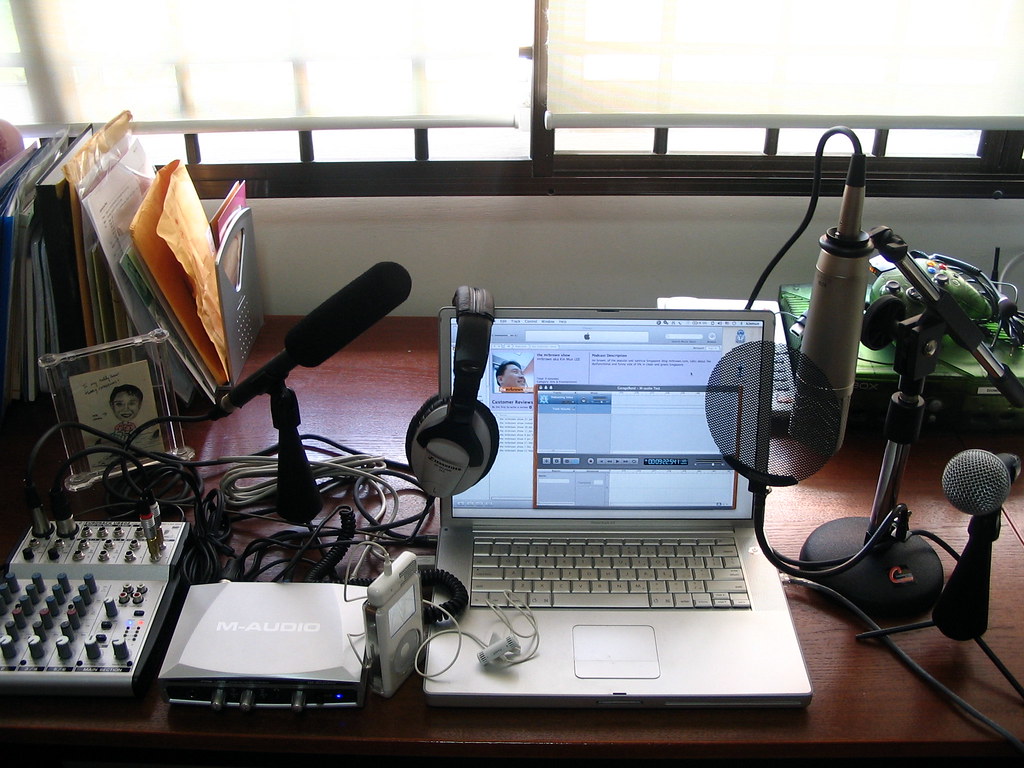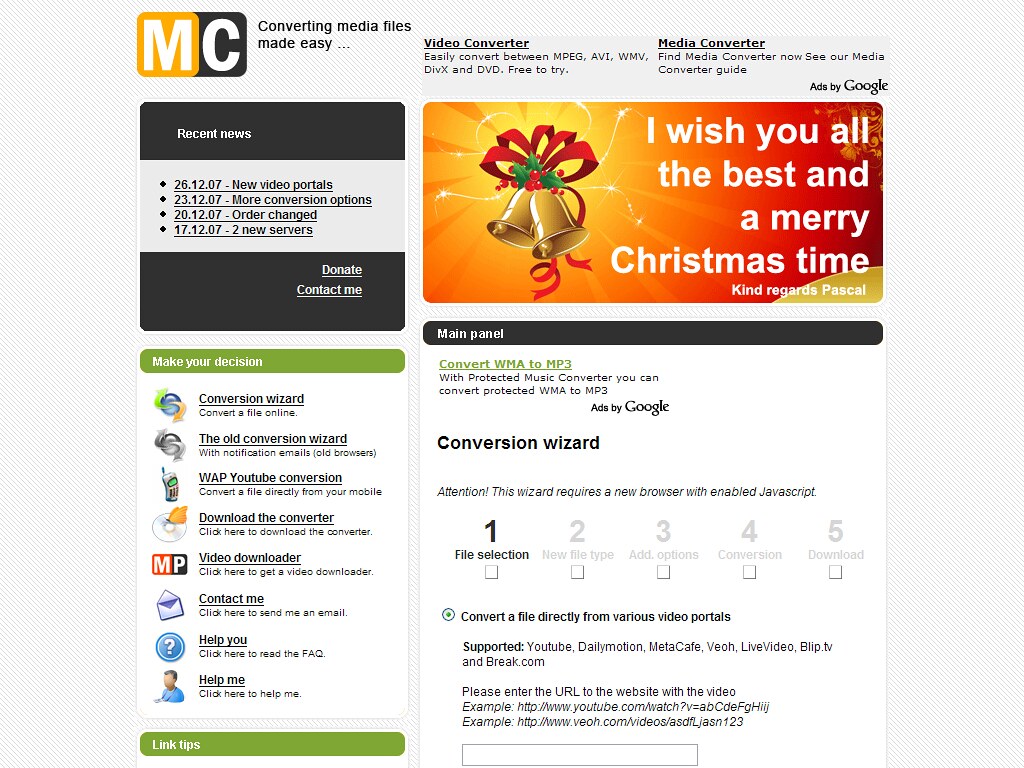Are you tired of constantly switching between YouTube and your podcast app just to listen to your favorite episodes? Or maybe you prefer to listen to podcasts on-the-go, but don’t want to waste data streaming videos? Whatever the reason may be, we have an easy solution for you. In this post, we’ll share a game-changing hack that will supercharge your podcast experience and make converting YouTube to MP3 a breeze. Keep reading to find out how you can streamline your podcast listening habits and never miss an episode again.

Introduction: The Benefits of Converting YouTube Videos to MP3 for Podcasting
Podcasting has become a popular medium for sharing information and entertainment, but producing quality content can be challenging. One way to simplify the process is by converting YouTube videos to MP3 files, which can then be used as podcast material. Converting YT to MP3 offers several benefits – it allows you to create audio-only versions of video content, making them more accessible and easier to consume while on-the-go or doing other activities. Plus, many podcasts are made using YouTube videos as references or sources of inspiration.
By extracting audio from these videos, you can repurpose the content without having to worry about copyright issues related to using someone else’s visuals in your podcasts. Furthermore, converting YouTube videos into MP3s saves bandwidth usage when downloading the source file multiple times for editing purposes. Overall, this technique streamlines your podcasting experience and helps produce high-quality audio content that appeals directly to your audience’s ears rather than their eyes.
How to Convert YouTube Videos to MP3: Step-by-Step Guide
To convert YouTube videos to MP3 for podcasting, you’ll need a reliable converter tool. There are many free and paid options available online, but the process is generally straightforward. First, copy the URL of the video you want to convert from YouTube. Then, paste it into your chosen converter tool and choose MP3 as the output format. It may take some time for longer videos, but once it’s done converting, download the newly created MP3 file.
Alternatively, you can use browser extensions like Video DownloadHelper or Convert2MP3 to directly save videos in audio formats such as MP3 without having to use external converters.
It’s important to note that downloading copyrighted content could lead to legal issues so ensure that what you’re downloading follows fair-use policies or has permission from its creator.
Also keep in mind that while higher bit rates result in better quality sound, larger files sizes might not be suitable for podcasts with limited storage space or bandwidth limitations.

Top Tools for Converting YouTube Videos to MP3: Pros and Cons
Top Tools for Converting YouTube Videos to MP3: Pros and Cons
If you’re looking for a reliable tool to convert your favorite YouTube videos to MP3, there are several options available online. One of the most popular tools is 4K Video Downloader, which allows you to download and convert videos in high quality with just a few clicks.
Another great option is Freemake Video Converter, which not only converts videos from YouTube but also supports other popular video sharing platforms such as Vimeo and Dailymotion. It also has additional features that allow you to edit your audio files before converting them into an MP3 format.
However, these tools may not be suitable for everyone. Some users have reported issues with file compatibility or slow conversion speeds when using certain software programs. Additionally, some free converters may come bundled with adware or malware that can harm your computer.
Overall, it’s important to weigh the pros and cons of each tool before choosing one that fits your needs best. Make sure the converter you choose provides high-quality outputs without harming your PC in any way!
Best Practices for Converting YouTube Videos to MP3 for Podcasting
Understanding the Importance of Converting YouTube Videos to MP3 for Podcasting
When converting YouTube videos to MP3 for podcasting, it’s important to have a clear understanding of the process and its benefits. Firstly, convert only those videos that are relevant to your niche or topic so that your listeners get high-quality content. Secondly, ensure that you have permission from the original creator if you plan on using their video as an audio source for your podcast. These steps will not only help you avoid any legal issues but also enhance the overall listening experience for your audience by providing them with quality MP3 files tailored specifically to their preferences.
Avoiding Legal Issues: Guidelines for Ethical Use of Converted Content in Podcasts
To avoid any legal issues, it’s important to follow ethical guidelines when using converted content from YouTube videos in podcasts. First, ensure that the video you are converting is not copyrighted material or infringing on someone else’s intellectual property rights. Second, always give credit to the creator of the original video or audio source by providing a clear attribution and link back to their content. By following these simple practices, you can help maintain a fair and respectful environment for all creators while still enjoying the benefits of yt mp3 conversion for your podcasting needs.
Mastering the Art of Editing: Essential Tips for Optimizing Audio Quality in Your Podcasts
To ensure high-quality audio in your podcasts, it’s important to master the art of editing. Start by selecting a reliable YouTube to MP3 converter with advanced options for bitrate and sample rate settings. Aim for an optimum balance between file size and quality, using a bitrate of 128kbps or higher whenever possible. Remove unwanted background noise, adjust volume levels, and apply equalization where necessary to enhance clarity and definition. Consider adding ID3 tags such as artist name, track title, and album artwork for better organization in podcast directories. Regularly monitor sound levels during recording and post-production to maintain consistency across episodes.

Legal Considerations When Converting YouTube Videos to MP3 for Podcasting
The Risks of Using Copyrighted Material in Your Podcast
Using copyrighted material in your podcast without permission can lead to serious legal consequences. Copyright infringement is a violation of intellectual property rights and it comes with penalties such as fines, lawsuits, and even criminal charges. As such, it’s important to be aware of the potential risks involved when converting YouTube videos to MP3 for podcasting purposes. Unless you have permission from the copyright owner or license, using their materials could result in negative consequences that could harm not only yourself but also your reputation and brand as a podcaster. Always ensure you have obtained proper permissions before including any copyrighted content in your podcasts.
Best Practices for Avoiding Copyright Infringement in Your Podcast
When using YouTube videos to create MP3 files for your podcast, it’s essential to be aware of copyright laws. To avoid infringing on someone else’s intellectual property rights and potentially facing legal consequences, here are some best practices to follow:
- Only use videos that have a Creative Commons license or are in the public domain.
- Obtain permission from the owner of the video if you plan on using copyrighted material.
By following these best practices, you can ensure that your podcast content is legally sound while still benefiting from converting YouTube videos into MP3 format. Remember: staying within legal boundaries will save you time, money and headaches in the long run!

How to Optimize Your MP3 Files for Better Podcast Listening Experience
To optimize your MP3 files for a better podcast listening experience, there are a few key things to keep in mind. First, make sure the bitrate of your MP3 is high enough to provide good sound quality without making the file too large. A bitrate of 128 kbps is generally considered standard for podcasts.
Secondly, consider using compression software to reduce the size of your MP3s without sacrificing quality. There are many free and paid options available online such as Audacity or Adobe Audition.
Lastly, properly tagging your MP3 files with relevant information such as episode title, show name and guest names can improve overall organization and searchability. Tags also help podcast directories like iTunes properly categorize and display your episodes in search results.
By taking these steps you’ll be able to ensure that listeners have an enjoyable experience when tuning into your podcast created through converting YouTube videos to MP3 files.

Troubleshooting Common Issues When Converting YouTube Videos to MP3
Troubleshooting Common Issues When Converting YouTube Videos to MP3
When converting YouTube videos to MP3, you may encounter some common issues that can affect the quality of your audio output. One issue is low-quality sound due to a poor video source, which cannot be remedied by conversion alone. You may need to find an alternative source with better audio quality.
Another issue is incomplete or interrupted downloads, resulting in truncated files or missing parts of the content. To avoid this, make sure you have a stable internet connection and sufficient disk space on your device.
Additionally, certain websites or tools for YT to MP3 conversion may contain malware or viruses that can harm your computer or compromise your security. Always use reputable sources and take precautions such as running antivirus software.
Lastly, ensure compatibility with your podcast hosting platform and media player software before uploading converted files. Double-check file format requirements and encoding settings for optimal playback experience across different devices and platforms.

Conclusion: Supercharge Your Podcast Experience with YT to MP3 Conversion
YT to MP3 conversion can be a game-changer for anyone looking to create high-quality podcasts. By using the right tools and following best practices, you can supercharge your podcast experience and offer your listeners an engaging audio content that is easy to consume.
In this article, we explored how to convert YT videos to MP3 files in a step-by-step guide format. We also discussed popular tools for converting YT videos and shared some legal considerations when using copyrighted material.
To optimize your MP3 files, make sure they are properly tagged with relevant metadata such as artist name, track title, and album art. Additionally, consider compressing the file size without sacrificing sound quality for faster upload/download speeds.
If you encounter any issues during the conversion process or while listening to your podcasts after publishing them online, check common troubleshooting tips like clearing cache/cookies or adjusting playback speed on media players.
Overall, converting YT videos to MP3 provides an effective way of elevating the quality of your podcasts – but it’s essential that you follow ethical principles surrounding copyrights laws. With these factors considered carefully before starting work on each episode – there’s no limit on what kind of results one could produce!
In conclusion, converting YouTube videos to MP3 is a powerful tool for any podcaster looking to supercharge their podcast experience. By following the step-by-step guide and utilizing the top conversion tools provided in this article, you can easily transform YouTube content into high-quality audio files. However, it’s important to keep legal considerations in mind when utilizing these extraction methods. Additionally, optimizing your MP3 files can significantly enhance your listeners’ experience. With some patience and troubleshooting techniques mentioned here, you’ll be well on your way to creating engaging podcasts that resonate with audiences everywhere!
